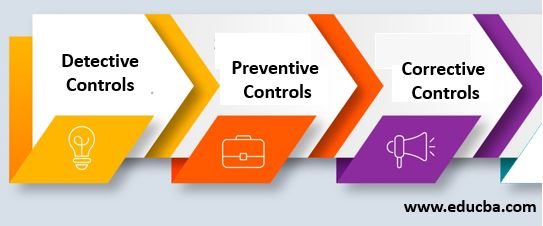Updated July 20, 2023

Definition of Accounting Controls
Accounting controls generally comprise of different methods and procedures which are practiced in different business organizations to help them maintain valid and accurate financial statements and these are not compliant with laws and regulations but on the other hand, aims at helping a firm function in the most efficient manner for all stakeholders.
Explanation of Accounting Control
Accounting controls are made up of various levels of procedures and steps which are due diligently implemented by a business organization to maintain a set level of validity and accuracy of their income statements. Accounting controls are usually applied so that a firm can operate with the utmost efficiency and have proper controls in place. Adherence to law and regulations is not the ultimate aim of accounting controls but its main purpose is to support the company to be an appropriate one for its stakeholders. There are generally three main areas of accounting control which areas detective controls, preventive controls and corrective controls. The sole purpose of accounting control is to instill the belief of the shareholders on the company and support their interest. The three types of controls mentioned earlier play the role based n the scenario and the degree of concern. Detective and preventive controls are generally situations based whereas corrective controls are more of the after effects of detective control or the suggestive measure of detective control.
Types of Accounting Controls
There are basically three types of accounting controls which are explained as follows:
1. Detective Controls
These are controls that are targeted to identify any existing practices which are not in line with the current policies and procedures. The goal here is to look for areas that are not operating as in the way it should be. This can be due to employees practicing illegal or wrong measures intentionally or like detection of any major faults in the system or accounting practices. Few types of detective controls can be inventory control/checks or internal audits.
2. Preventive Controls
Preventive controls is defined as the existing controls which are already in action and are aligned to the policies and procedures. These are mainly in place to avoid any kind of inaccuracies or wrong practices and are generally the set of rules which should be followed by each and every employee. One typical example of this can be reducing the involvement of management in the preparation of financial statements. Although it is necessary for the management to get involved in such instances because they are aware of each and every number, but it is the final say of the accountants based on whose verdict the numbers are fixed. The management may have some wrong intentions to dress the financials for their own benefit.
3. Corrective Controls
Corrective controls are the aftermath results of detective controls. Whenever some discrepancy is found from corrective controls, corrective controls are applied in. They are applied to sort any issues which have raised on account of detective controls. An example of this can be any issues which the account has raised based on an internal audit, the rectification measures are termed as corrective controls. Corrective controls are more time consuming because these is where the major changes to the system or process is taken care of and suggestive changes are applied henceforth.
Effects of Accounting Controls
The effects of accounting controls are as follows:
- Stringent checks are applied to maintain the accuracy of books of accounts
- It involves an extra cost in terms of hiring personnel for auditing.
- It is also time-consuming as auditors may ask for several information in the areas wherever there is a scope of doubt
- It prevents a lot of fraud and malpractices from happening within an organization
- It keeps a check that management themselves are not dressing the financials for their own personal benefits.
- It acts on the best interest of the shareholders of the company.
Advantages of Accounting Controls
The advantages if accounting controls are as follows:
- It helps in improving the efficiency of the company as a whole and rectifying some grey areas too.
- It prevents in numerous malpractices which may happen either form the employee’s side or from the management’s end
- It is more of governance which acts on the support of the shareholders of the company to protect their interest.
- It helps to understand the areas which are not in line with the current procedures or policies.
- It reduces the scope of financial dressing of numbers by the management with the inclusion of external and internal audits.
- It helps in increasing the financial reliability and integrity for the business.
- It makes the business stay compliant with business laws and statutory regulations.
- It is also needed to bring about effective execution of plans by the management.
- It can be useful to identify areas of wrong practices that are very much intentional.
Disadvantages of Accounting Controls
The disadvantages of accounting controls are as follows:
- It is very rigid in its entire procedure and involves a lot of steps.
- It consumes a lot of productive time which otherwise could have been invested in some other key areas.
- It involves a separate budget and thus a cost factor for the company to apply all the checks.
- It involves the hiring of external auditors who come with a hefty price tag.
- Another problem is that they are not fully safe and secured processes. An experienced executive can still make some manipulation to numbers even after the hiring of auditors both internally and externally.
Conclusion
Accounting control as we discussed are key to every business’s stability. It makes sure the financial statement is true, valid and accurate. Also, accounting controls prevent the business to suffer any kind of major malpractices, be it from the management side or the employees. Though it is time consuming process, if done thoroughly makes the company a reliable one and also acts on the interest of the shareholder. The sole purpose of accounting control is to support its shareholders and make sure their invested money is totally safe.
Recommended Articles
This is a guide to Accounting Controls. Here we also discuss the definition and types of accounting controls along with advantages and disadvantages. You may also have a look at the following articles to learn more –



